#you can reblog or reply
Text
Question for all my lovelies!
Who out of your favs is the one that wants the most kids? Like a whole team, need to get a van or big SUV type of family
9 notes
·
View notes
Text
theyre coping

#simon petrikov#prismo adventure time#betty grof#jake the dog#fionna and cake#if you reblog/reply can u tell me which one u think is going thru the worst trying to cope. u can count finn aswell
2K notes
·
View notes
Text
So.. Timberkon?

#timberkon#I can not figure out who’s who tho#I think Kons jade#but really it works any why you turn it#bernard dowd#Tim drake#kon el#Timkon#timber#this is also a Bernard and Kon ship post#but I don’t think they have a ship name#so#berkon#konber#full pic in replies#reblogs*
1K notes
·
View notes
Text
does anyone want to talk about spiderbit can we please talk about spiderbit
108 notes
·
View notes
Text
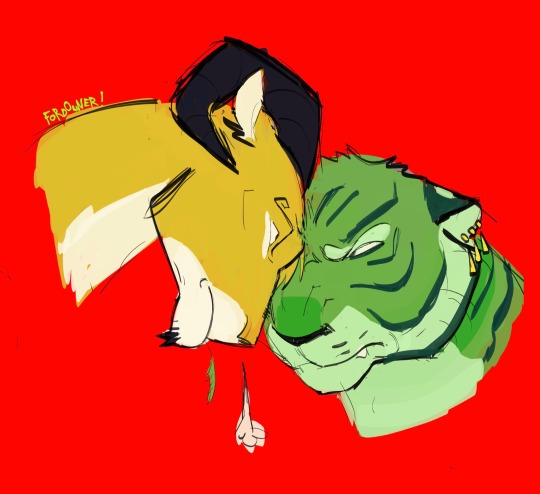

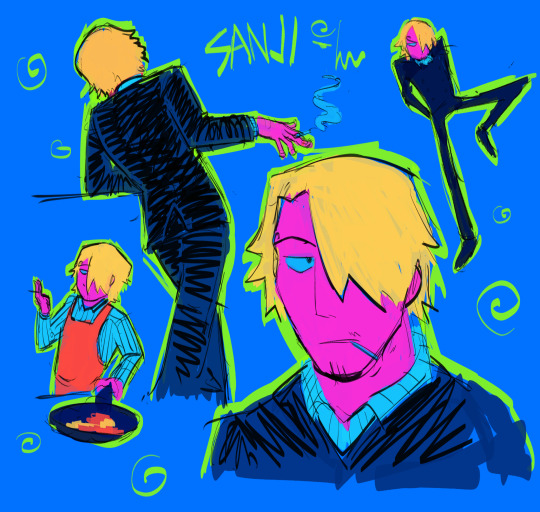
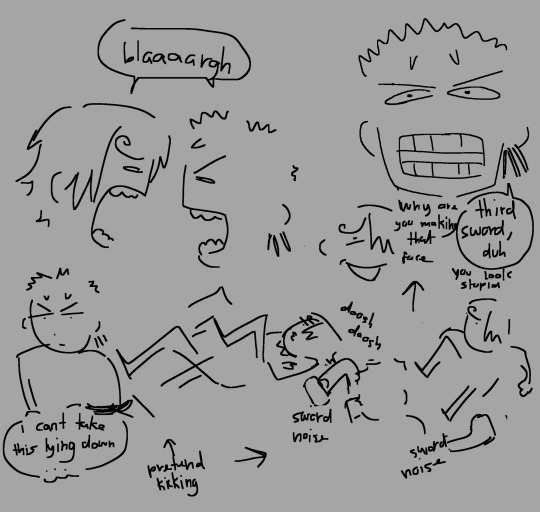
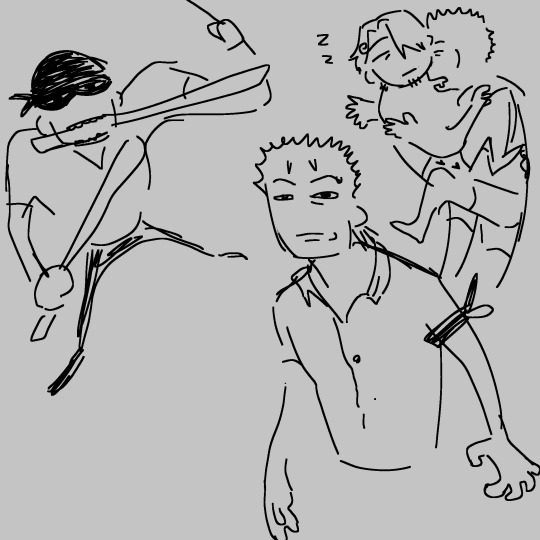
more tumblr exclusive old art touchups
learning how to draw them phase was rough 💔
#one piece#op sanji#op zoro#roronoa zoro#sanji#zoro#zosan#i like these zoros in the last one though they amuse me a little#i should draw more one peas animals scratches chin#also i have no idea how to reply to reblogs if you can but thank you guys for the support i appreciate it greatly 💐
70 notes
·
View notes
Text
Everyone tell me what car your oc would drive please
#I'm in a mood and would like to know.#You can reblog with it or just reply or make your own post it's a choose your own adventure type situation#If you dont know cars very well it's ok I dont either 👍
55 notes
·
View notes
Text
Since Smosh will be on a break this week what if we all shared our favorite Smosh videos in case people haven't seen them yet and it will give us some new stuff to watch!
#smosh#smoshblr#smosh games#smosh pit#so you can reblog or reply and say your fave video(s)#queue and i
50 notes
·
View notes
Text
i've shared some of Alex Freed's narrative writing advice before and i recently read another article on his website that i really liked. particularly in branching/choice-based games, a lot of people often bring up the idea of the author "punishing" the player for certain choices. i agree that this is a thing that happens, but i disagree that it's always a bad thing. i think Freed makes a good case for it here.
...acting as the player’s judge (and jury, and executioner) is in some respects the primary job of a game’s developers. Moreover, surely all art emerges from the artist’s own experiences and worldview to convey a particular set of ideas. How does all that square with avoiding being judgmental?
[...]
Let’s first dispel–briefly–the idea that any game can avoid espousing a particular worldview or moral philosophy. Say we’re developing an open world action-adventure game set in a modern-day city. The player is able to engage any non-player character in combat at any time, and now we’re forced to determine what should occur if the player kills a civilian somewhere isolated and out of sight.
Most games either:
allow this heinous act and let the player character depart without further consequence, relying on the player’s own conscience to determine the morality of the situation.
immediately send police officers after the player character, despite the lack of any in-world way for the police to be aware of the crime.
But of course neither of these results is in any way realistic. The problems in the latter example are obvious, but no less substantial than in the former case where one must wonder:
Why don’t the police investigate the murder at a later date and track down the player then?
Why doesn’t the neighborhood change, knowing there’s a vicious murderer around who’s never been caught? Why aren’t there candlelight vigils and impromptu memorials?
Why doesn’t the victim’s son grow up to become Batman?
We construct our game worlds in a way that suits the genre and moral dimensions of the story we want to tell. There’s no right answer here, but the consequences we build into a game are inherently a judgment on the player’s actions. Attempting to simulate “reality” will always fail–we must instead build a caricature of truth that suggests a broader, more realized world. Declaring “in a modern city, murderous predators can escape any and all consequences” is as bold a statement on civilization and humanity as deciding “in the long run, vengeance and justice will always be served up by the victims of crime (metaphorically by means of a bat-costumed hero).”
Knowing that, what’s the world we want to build? What are the themes and moral compass points we use to align our game?
This is a relatively easy task when working with a licensed intellectual property. In Star Trek, we know that creativity, diplomacy, and compassion are privileged above all else, and that greed and prejudice always lead to a bad end. A Star Trek story in which the protagonist freely lies, cheats, and steals without any comeuppance probably stopped being a Star Trek story somewhere along the line. Game of Thrones, on the other hand, takes a more laissez-faire approach to personal morality while emphasizing the large-scale harm done by men and women who strive for power. (No one comes away from watching Game of Thrones believing that the titular “game” is a reasonable way to run a country.)
These core ideals should affect more than your game’s storytelling–they should dovetail with your gameplay loops and systems, as well. A Star Trek farming simulator might be a fun game, but using the franchise’s key ideals to guide narrative and mechanical choices probably won’t be useful. (“Maybe we reward the player for reaching an accord with the corn?”)
Know what principles drive your game world. You’re going to need that knowledge for everything that’s coming.
[...]
Teaching the player the thematic basics of your world shouldn’t be overly difficult–low-stakes choices, examples of your world and character arcs in a microcosm, gentle words of wisdom, obviously bad advice, and so forth can all help guide the player’s expectations. You can introduce theme in a game the way you would in any medium, so we won’t dwell on that here.
You can, of course, spend a great deal of time exploring the nuances of the moral philosophy of your game world across the course of the whole game. You’ll probably want to. So why is it so important to give the player the right idea from the start?
Because you need the player to buy into the kind of story that you’re telling. To some degree, this is true even in traditional, linear narratives: if I walk into a theater expecting the romcom stylings of The Taming of the Shrew and get Romeo and Juliet instead, I’m not going to be delighted by having my expectations subverted; I’m just going to be irritated.
When you give a player a measure of control over the narrative, the player’s expectations for a certain type of story become even stronger. We’ll discuss this more in the next two points, but don’t allow your player to shoot first and ask questions later in the aforementioned Star Trek game while naively expecting the story to applaud her rogue-ish cowboy ways. Interactive narrative is a collaborative process, and the player needs to be able to make an informed decision when she chooses to drive the story in a given direction. This is the pact between player and developer: “You show me how your world works, and I’ll invest myself in it to the best of my understanding.”
[...]
In order to determine the results of any given choice, you (that is, the game you’ve designed) must judge the actor according to the dictates (intended or implicit) of the game world and story. If you’re building a game inspired by 1940s comic book Crime Does Not Pay, then in your game world, crime should probably not pay.
But if you’ve set the player’s expectations correctly and made all paths narratively satisfying, then there can be no bad choices on the part of the player–only bad choices on the part of the player character which the player has decided to explore. The player is no more complicit in the (nonexistent) crimes of the player character than an author is complicit in the crimes of her characters. Therefore, there is no reason to attempt to punish or shame the player for “bad” decisions–the player made those decisions to explore the consequences with you, the designer. (Punishing the player character is just dandy, so long as it’s an engaging experience.)
[...]
It’s okay to explore difficult themes without offering up a “correct” answer. It’s okay to let players try out deeds and consequences and decide for themselves what it all means. But don’t forget that the game is rigged. [...]
Intentionally or not, a game judges and a game teaches. It shows, through a multiplicity of possibilities, what might happen if the player does X or Y, and the player learns the unseen rules that underlie your world. Embracing the didactic elements of your work doesn’t mean slapping the player’s wrist every time she’s wrong–it means building a game where the player can play and learn and experiment within the boundaries of the lesson.
#every choice you make while designing your game says something about your experiences and your world view#whether you think it does or not#i think abt that interview with hozier where he talks abt all art being political & someone in the comments tried to disagree#by saying a child's drawing of their house cant possibly be political & someone else replies:#but it is. what does a house look like to them? is it one story or two? is it a trailer? an apartment? these things imply something#about that child's lived experience#another post i reblogged on kithj that talked abt these games like the forest or far cry where you play as a random white guy#that is being hunted by the evil native people. and the game requires you to just indiscriminately kill them#without thinking about it bc it's a game and you're the protag. that says something whether it was intentional or not#allowing the player character to do or say certain things without consequences communicates something to the player!!!#this does not mean you should punish them but that you should think about your narrative design and your choices and their outcomes#think about what makes sense in your world#and think about what it could imply in the real world. to the player#and think about all the different paths you can explore with them in this way#writing
70 notes
·
View notes
Note
Neil Gaiman (creator of Good Omens) is a Zionist.
looked into and it yeah, his most recent statement i can find is... something. i'll delete the poll shortly because while he may not be the only person who worked on it, i really don't want to support something so tied to him
for those who want to learn further: decolonize palestine is a great place to start
#answered#there's lot of resources to educate yourself about this so please keep an eye out this is just the one i have on hand#argue with the wall if you disagree#if you notice more of these you can send an ask since i'm more likely to see those than replies or reblogs
87 notes
·
View notes
Text
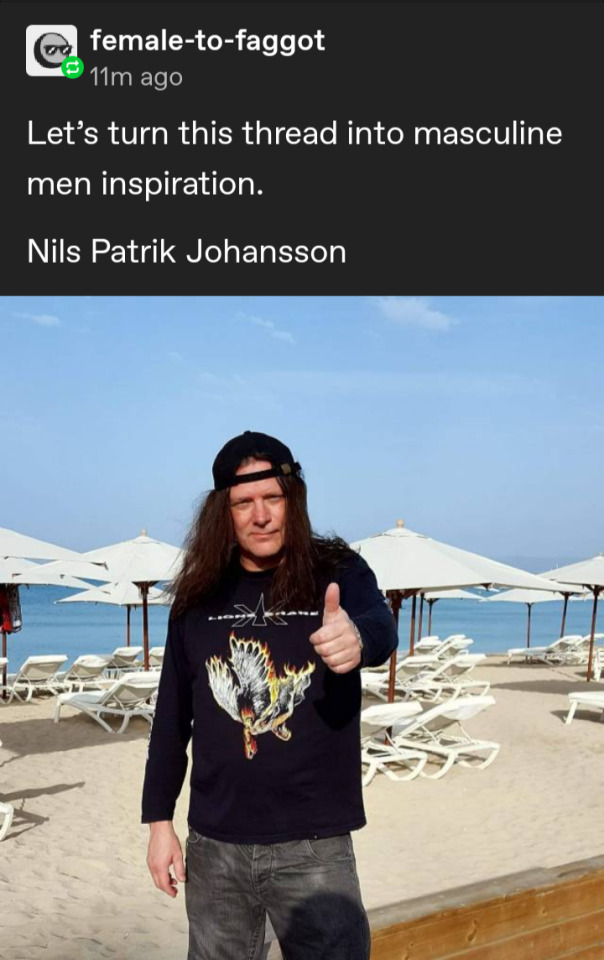
you don't even know the extent to which this reply pissed me off when I got it.. my jaw dropped and it was funny and I did laugh yes but I was more in disbelief than anything like you're really doing this to me and you're serious you'd really do this to me a good person who's done nothing to you
#most unbelievable reply ive evevr gotten#and that one post reyes(?) made where i could post ''hi'' and someone would reply saying what about people without mouths who cant say hi?#wasnt an exaggeration i used to get ridiculous misreading reblogs on my posts all thr time#so you can imagine how i felt for tbis to be rhe most unbelievable to me..#genuinely shocking 😑
36 notes
·
View notes
Text
WOT show-onlys/newcomers when a reader reblogs their post making a smug little book-spoiler-related joke that they think is so slick and subtle but in fact blatantly spoils something because anybody with a modicum of critical thinking ability could figure out what the joke references even if they haven't read that part in the books

#as a former show-only i can say with confidence that this is the absolute no.1 most annoying Reader Behavior on tumblr lmao#you guys ARE NOT SLICK#next time you're thinking 'oh i can't wait to make this joke in the tags and i'm sure the show-only OP won't understand it': Be Silent!!!#then on the other end of the spectrum are the people who tag book spoilers on posts about extremely minor comic relief book 1 moments#that aren't in the show and will never be in the show and would tell non-readers absolutely nothing of note if they were to see them#you guys are angels and we're thrilled you're here#wot#wot book spoilers#for my replies & reblog comment
62 notes
·
View notes
Text
Qrow’s Semblance is Fortune! 🐦⬛
I talked about this briefly before, having speculated that Clover’s pin carries on his good luck after death or that Qrow has just done a lot of training mentally and/or physically. @benevolentslut had some amazing additions as well & I want to sum up this theory for you as best as I can as we reached similar conclusions even before I had read her reblog.
Qrow has only been in the negative all his life, mentally and emotionally.
This man has had barely any positivity in his life.
"His whole life he's been the epitome of cynicism and pessimism." - @benevolentslut
Qrow grew up under constant stress & threat of those around him.

Needless to say, but I don't think he could trust anyone he grew up around except maybe Raven.

Then he has to constantly worry about being found out by the other huntsmen! Also growing up with the threat of huntsmen and Grimm the entire time!
Then Oz drops the whole Salem problem on him & I'm sure that didn't help his mental health in the slightest!
"His sister leaves him and their team, and then summer disappears." - @benevolentslut Yeahhhh he is losing everyone close to him in one way or another! That cannot be a fun experience!
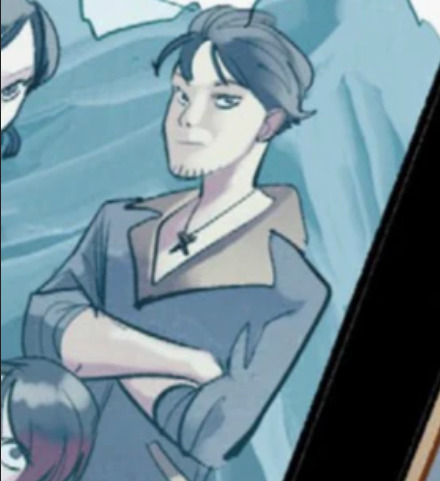
This look like the face of a guy that's doing okay?
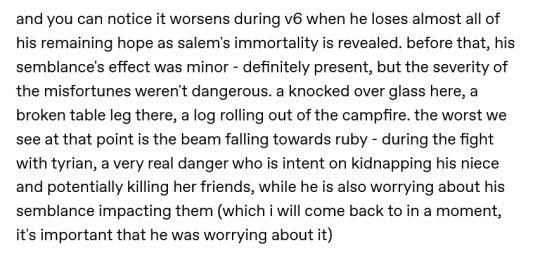
I'm just going to copy paste this here as I hadn't noticed it & it feels worth noting that the intensity of his misfortune seems to increase with the increasing mental strain.
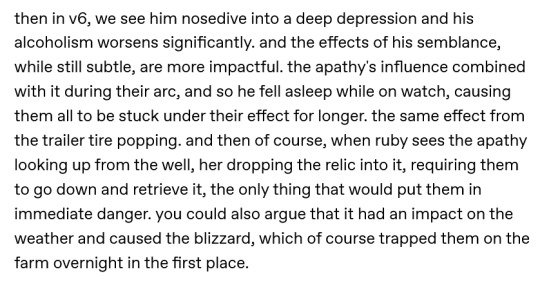
While we don't know for sure that all of these things are a byproduct of Qrow's misfortune semblance, it certainly isn't out of the realm of possibility. Notice the worsening of his mental health resulting in potentially more disastrous outcomes. 😰
"we see him blaming himself constantly for everything that goes wrong, and it only causes that to become more true." - @benevolentslut
She lists a lot more examples of where Qrow's semblance has potentially worked this way in the original post. Clover comes along & starts lifting him up, giving him actual hope. He now has a little seed of hope planted in him. 🍀
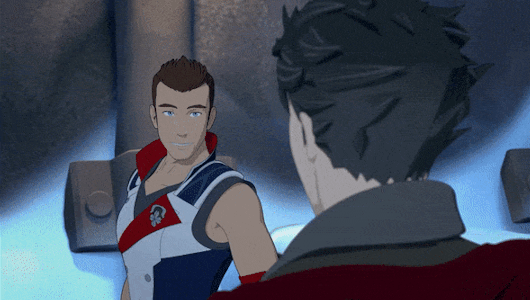
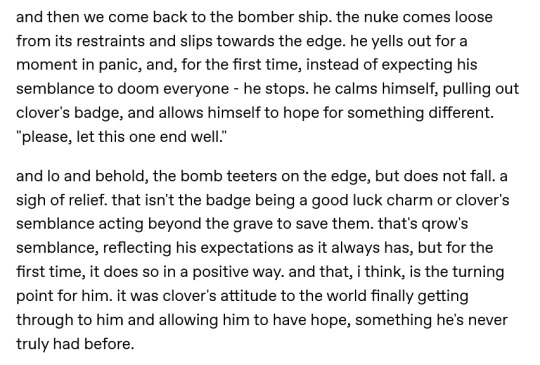
Wow, Qrow is doing so good for himself lately! I sure hope nothing-

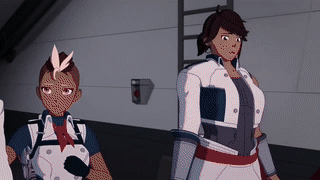
Oh... oh no. From his perspective Ruby & Yang could literally be dead. He is stricken with grief as he watches it all unfold & probably sunk back down into a negative spot mentally. He may even blame himself in some way.
When you're this low, there's a saying that goes "nowhere to go but up."
I firmly believe that Qrow would see things that way, especially after reaching his lowest point. He can only do his best to help those around him. Though he's the most alone he's ever been, he's becoming a part of a new community where people help one another. In that sense, it's impossible to be alone. In spite of it all, he slowly finds his mental health improving! Ruby's message to the world is bringing people together! 🌹
"and we see him take up clover's role, both in terms of how he's helping out around shade, and more literally, in the unmissable parallel where he catches the guy who trips." - @benevolentslut
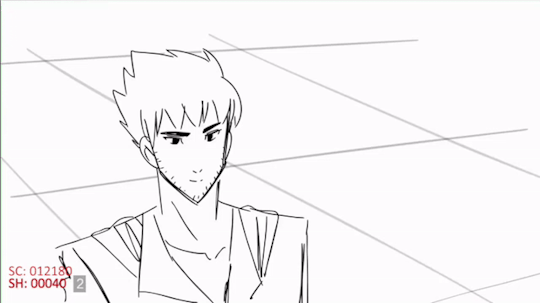
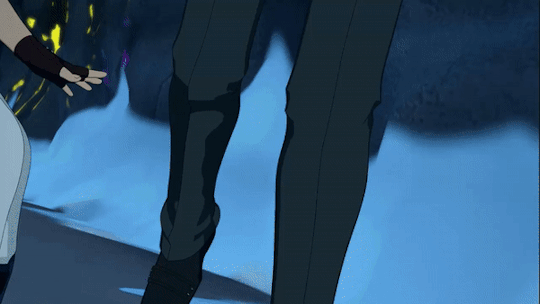

Ruby & Clover have both filled him with hope & he's more optimistic than he's ever been, which results in bursts good fortune! ✨
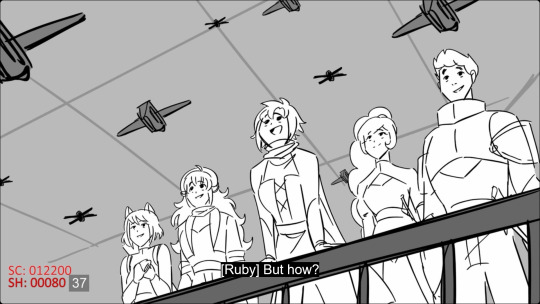
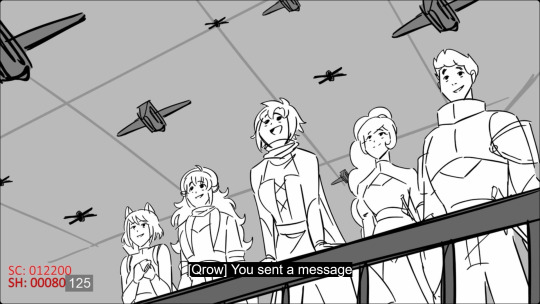
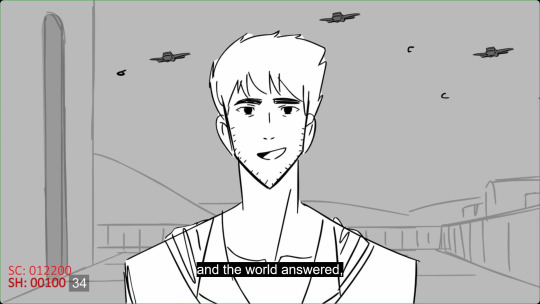
There's also already a premise for shifts in mental health and trauma resulting in semblance evolution.
Cinder betrayed Neo & so she winds up in the Ever After & through her form changes is showing us that she now has negative feelings towards Cinder.
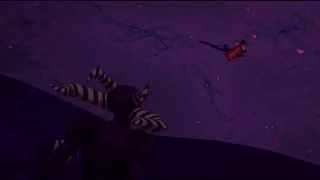
She's so upset that her semblance starts to make multiple clones of her which it has never been able to do before. Her Overactive Imagination semblance has evolved due to the state of her mental health.

Her semblance begins to evolve so much to where she can create entire architectural structures and buildings out of it!
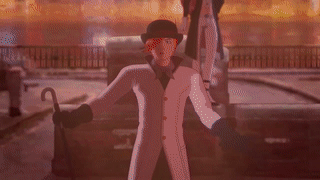
She can even use it to talk through the people she recreates, something she's not physically capable of herself.
While we do have to take into account that the Ever After plays by rules that are a little bit different at times; this absolutely confirms that semblances, much like people, can change & grow! 💪
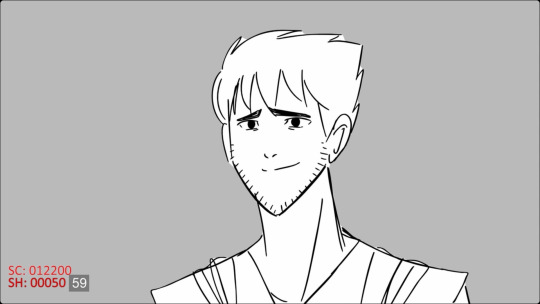
My conclusion: Volume 10 & beyond will show Qrow's personal semblance evolution as he finds out that his power is actually Fortune itself & the ability to control it, good and the bad.
#oh god I have to compress the gifs so much because of tumblr's gif size limit 😩#thank you for the theory fuel & the supporting points you gave!#maybe I'll do a youtube video on this topic when I come off of my semi-hiatus#wow I told myself I'd keep it brief but here we are; I'm procrastinating packing my bags & making rwby theories#I just think Qrow is a very fascinating character & if we are right about this; he will be an important player in volume 10 & onward#imagine having a guy who can manipulate fortunate on your team; that's actually so powerful as an ability if he can master it#It's not so much that the Clover ebi pin is good luck; but that Qrow himself is becoming a beacon of good fortune#Fair Game lives on in his heart & the hope he's been given even if Clover isn't here to see it#please let me know what you think in the replies; reblogs; whatever; if you have anything to add I'd love to hear all about it!#rwby theory#rwby volume 10#rwby volume 9#fair game#qrow x clover#rwby#qrow branwen#greenlight volume 10#mine#op
25 notes
·
View notes
Text
Behind the scenes, American officials also believe there is limited time for Israel to try to accomplish its stated objective of taking out Hamas in its current operation before uproar over the humanitarian suffering and civilian casualties – and calls for a ceasefire – reaches a tipping point.
In fact, there is recognition within the administration that that moment may arrive quickly: Some of the president’s close advisers believe that there are only weeks, not months, until rebuffing the pressure on the US government to publicly call for a ceasefire becomes untenable, sources told CNN.
A lot of this pressure — the majority, I would wager — that Biden and US national leaders are getting is the result of people calling their reps, attending protests, writing to their newspapers and generally making themselves heard on this issue. People make a difference, and it's always worth reaching out to your legislators and telling them what you think.
Senators' info is pretty easy to find, since you've got two for every state (even DC and other non-state people have someone they can call!) but sometimes it's a little tricky remembering who your representative is, especially now with the district lines having changed up. So check your address here and then call their office — I've found more luck getting hold of an actual person at their local offices rather than the DC one, fwiw.
#deleted my previous reblog of someone else's post#because someone in the replies said 'maybe hitler had the right idea' and I just...don't need that today#plus frankly if you say 'israel is committing genocide' and then allow comments like 'jews should've gotten genocided harder'#then you terrify me and I cannot trust you on... pretty much anything#but I think this article will show people that their voices matter!#please reblog if you feel like this is something you can support—I'd love for more people to call their politicians#YOU CAN DO THIS GO GIVE PEOPLE A CALL#politics!#eta: also note the headline of this article—specifically calling it 'carnage'—reflects a more accurate depiction of the violence#that the Israeli army is inflicting on Gaza#I think a LOT of newsmedia has done a bad job of using terminology in this and other issues#(remember when nobody would write that Trump was lying despite clear proof that he was in fact lying)#but this indicates that there's more desire in the media to describe things in clearer terms#which again is progress!
67 notes
·
View notes
Text
i had the most infuriating interaction on twitter. so i want to have more productive and interesting conversations about homestuck now. tell me things you find unique or interesting with homestuck's writing/characters/themes etc! or tell me criticisms you have about it, its character choices or writing choices, etc! (pls dont come in to just say act 6 is bad or vriska did nothing wrong etc ! you can have those opinions but i want to spark conversations and debates around new and interesting topics or topics that don't get brought up as much!!) ALSO PLS NO HS2 i just want to talk about Homestuck as it is because i think there's still so much to dissect and explore!
#you can reply to this post or reblog it or send an ask!#i just want to talk to people abt homestuck#IN GOOD FAITH!!#i want new conversations#no more vriskourse#lets talk about trans coding#or homestucks evolution into a piece of queer media#or what the use of color has to say about the characters and their thematic ties to each other#or how about classpects and what those mean to the characters' relationships and how they grow and evolve as people#or how hussies clear biases and racism as a - at the time - cis white guy are apparent in homestucks coding and dialogue#IDK there is just so much to talk about with homestuck and all we ever really see is the same discourse over and over again#let me hear your thoughts#just please.. no hs2...#it will never be canon to me i seriously do not gaf about it im sorry#talks
27 notes
·
View notes
Text
well i think those really specific polls are cute and fun like wow what beautiful facts about my friends and the joy of community....so
211 notes
·
View notes
Text
It’s wild how shipping culture has changed so drastically over time on the internet.
In the old days people shipped characters who either had only one line of dialogue with each other, never even met, or not even from the same piece of media. It was the wild west and sure some ships were uncomfortable but people had the mindset to just block the tag and stay away from ships they didn’t enjoy.
Nowadays? It’s more like people have to clarify that their ship isn’t canon compliant, character adjacent, and story irrelevant otherwise they get a flood of comments saying “but this character isn’t like this in canon” and some people legitimately get angry if you’re not following the canon.
Like- shipping and fandom culture from what I understand it is about engaging with media in a way that caters to you. And if you don’t like a ship or show just… block the relevant tags and don’t engage in the ships? The internet isn’t supposed to cater to us- we have to cater ourselves to our internet environment. And no matter how many times people may harass others over a fandom or ship they don’t like, those ships are not gonna disappear.
The internet has just been getting worse when people have decided to place morality in their opinions by saying things like “if you enjoy the ship then you support (insert horrible thing here that’s usually completely unrelated to the ship itself)” when it used to be “eh, not my thing” and people just moved on.
And for the record this isn’t about a specific ship or anything- just an observation of how fandom has evolved (and regressed) over the years and I find it fascinating from a sociological perspective cause we still don’t know how having the internet from birth affects the development of kids and how that affects how they interact with others- isn’t that scary?
I know that’s slightly unrelated but the way people engage in media has been changing over they years and that also involves fandom and the maturity level thereof in the internet space and someone smarter than me could probably write a whole thesis paper about fandom culture and how the internet has hindered the social development of people and how that affects community specifically from a fandom lens.
Just- for your sanity younger internet children: it’s not worth harassing others over something as trivial as ‘it’s not canon that this character kisses another character.’ Just find ships you like. Block ships you don’t. And just enjoy your time doing what you like!
You can’t control the internet but you can nurture your little corner of it.
#shipping#canon ship#non canon ships#reader x character#self ship#I get so tired of seeing shipping posts and the comments or reply tweets are nothing but ‘but this isn’t canon tho!!!’#sonny when I was your age we shipped characters who never even met in canon!#even with ships I don’t like- I get exhausted seeing people get bombarded by fourteen year olds who haven’t developed critical thinking yet#every day I agree more that people under 18 shouldn’t have access to the internet#this can also apply to people who act like ‘if you dont reblog or boost this post (insert social issue here) then you’re a bad person!!’#like… no#you don’t have to apply moriality to a stinkin’ reblog button!#sure informing people is important but you don’t have to take the responsibility of the world’s issues#we’re all doing the best we can and you don’t have to prove your morality to be a good person#it’s okay to not engage with those kinds of posts if it makes you uncomfortable- that doesn’t affect your morality in any way#For example: I’m never gonna reblog gory posts showing battle zones#does that mean I support war? absolutely not!#I’m just protecting my mental health! and you need to as well#the internet is yours to make it how you want and if you want it to be an escape from the horrors of the world that’s okay#protect your happiness fam
38 notes
·
View notes